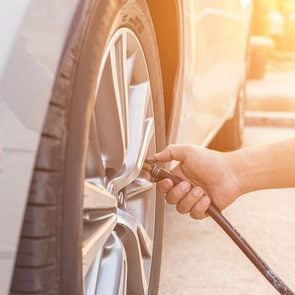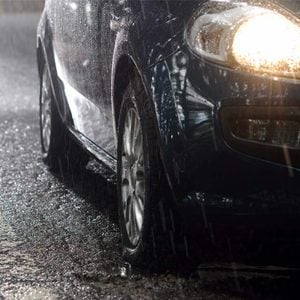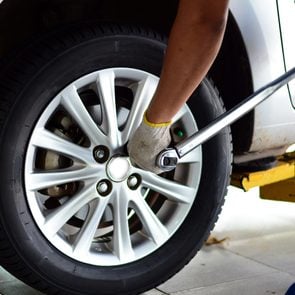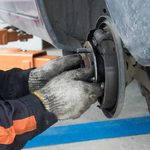6 Reasons Your Car Horn Isn’t Working—And How to Fix It
Car horn not working? The first step is to identify the source of the problem—here's how.
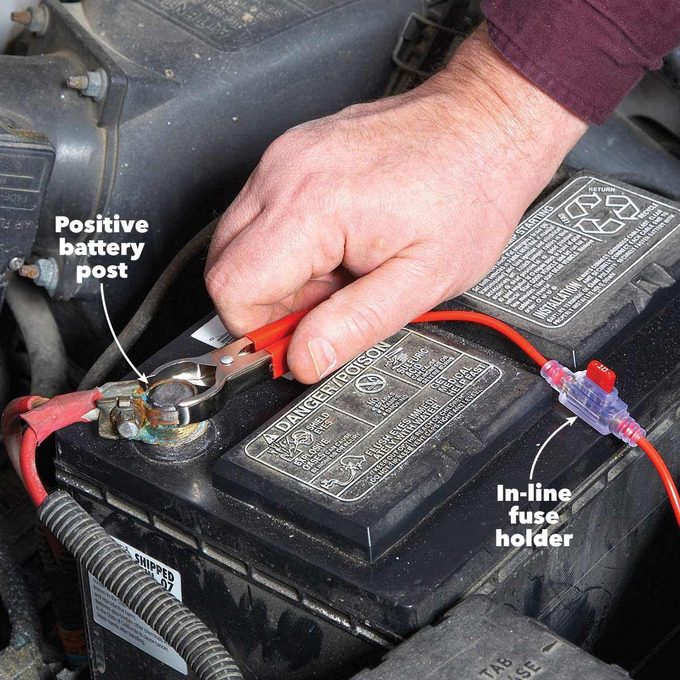
Why Your Car Horn is Not Working
Car horns sit up front where they’re exposed to rain and road chemicals. Once that spray gets into the horn’s innards, it can short out the coil and kill the horn (and blow the fuse in the process). But an inoperative horn can also be caused by a bad horn switch in your steering wheel, a broken “clock spring” under the steering wheel, a bum horn relay, a broken wire or a corroded ground. Here’s how to check the most likely suspects.
Tools and materials required for fixing a broken car horn:
- 16-gauge wire
- Clamps (two)
- In-line fuse holder
(Here 20 tools no home mechanic should be without.)
Start with the fuse. Refer to the car’s owner’s manual for its location. If the fuse is good, jump power directly to the horn with a homemade fused jumper (pictured here). You can make a fused jumper with 16-gauge wire, two clamps and an in-line fuse holder. Connect one clamp to the terminal on the horn and quickly touch the other end to the positive battery terminal. If the fuse blows, you’ve got a bum horn. If the horn makes a clicking sound, the problem could be a poor ground connection. Clean the horn’s ground connection and try powering the horn again. If the horn still clicks, you’ll have to replace it.
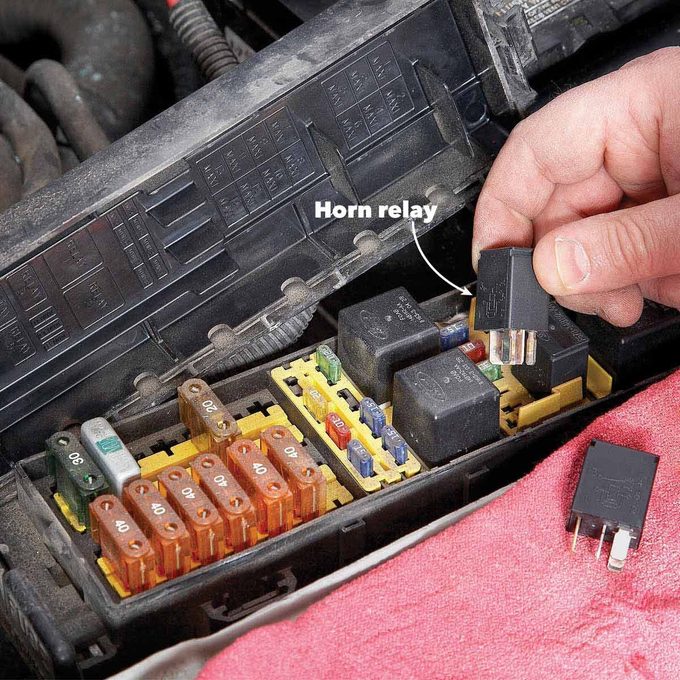
If the horn works with jumpered power, the problem lies upstream. Before you waste time searching for a broken wire, try swapping out the horn relay. If the relay works, you’re looking at a much bigger problem. Take it to a professional auto mechanic.
Next, find out what these strange car noises could mean.
